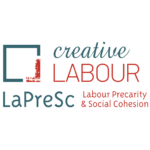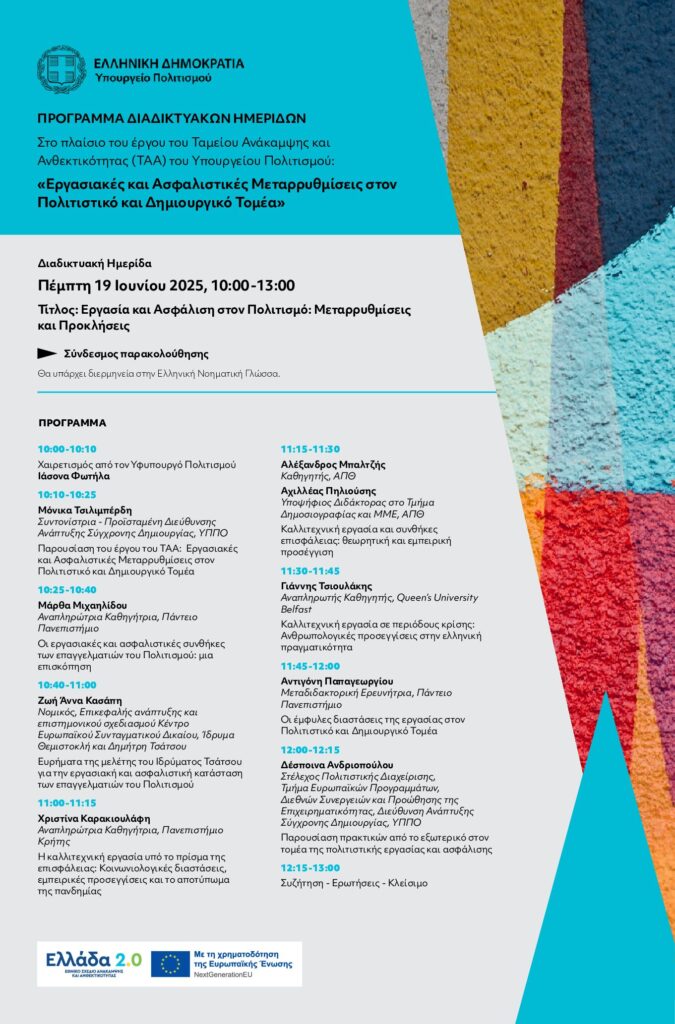In the context of the research project LaPreSc (National Recovery and Resilience Plan “Greece 2.0”, funded by the European Union – NextGenerationEU, Implementation Body: HFRI – Project Number: 16313, Beneficiary: University of Crete), a comprehensive research initiative has been developed, comprising in-depth interviews and a survey on social cohesion and precarious work in the cultural and creative industries (CCIs). This research is currently underway. The survey is designed to collect quantitative data for the two theoretical constructs, with the aim of investigating the relationship between them within these sectors and in a country where research on artistic and creative labor is relatively limited. This paper addresses issues pertaining to job precariousness. It delineates the process of generating observable indicators for its measurement and elucidates the methodological challenges that arise in analyzing this construct and operationalizing it for empirical research purposes.






